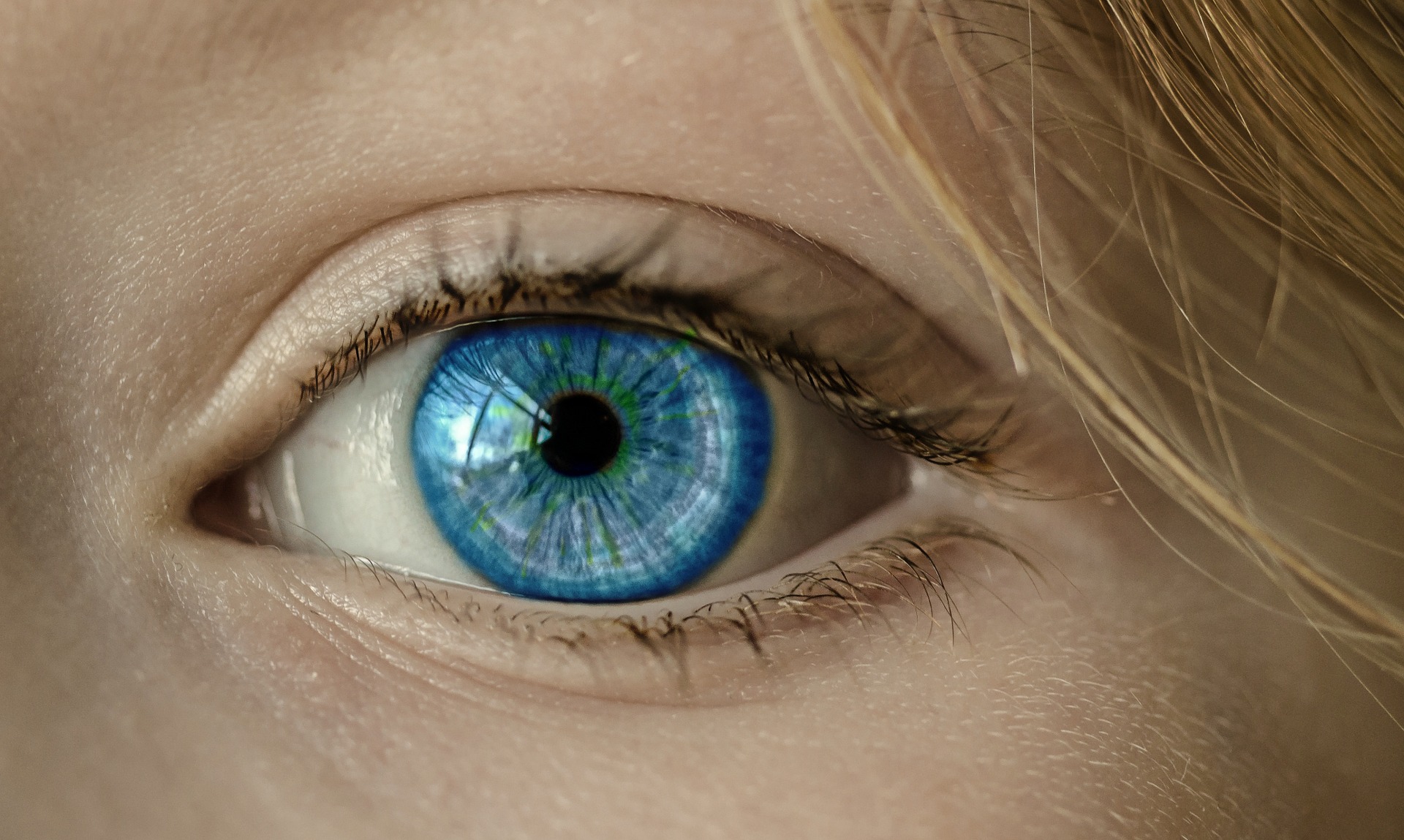Spot the Difference: Understanding Why You’re Seeing Spots In Your Vision
We’ve all experienced it at some point those curious moments when colorful dots suddenly dance before our eyes, teasing us with their elusive movements.
What are these peculiar spots, and should you rush to schedule an eye exam? While black spots or floaters in your vision might trigger a bit of panic, take a deep breath because there are several reasons why this could be happening.
The truth is, pinpointing the exact cause without consulting your eye doctor is like trying to solve a puzzle blindfolded.
However, there’s some good news: in most cases, these visual quirks are common and not something to lose sleep over. In this article, let’s dive into the potential causes of these floaters and black spots, shedding light on what could be happening inside your eyes.
 Woman wearing sunglasses (DSCF5007)
Woman wearing sunglasses (DSCF5007)
What Does It Mean to See Spots in Your Vision?
You might have noticed specks, cobweb-like images, or threads drifting across your vision, especially when gazing at a wide, clear blue sky. But what do these spots really signify?
Good news first: in most cases, seeing spots is no cause for alarm. These spots, known as floaters, are often a normal part of aging and pose little concern.
However, there are times when spotting spots can be a red flag, signaling an underlying issue that demands immediate attention. If you suddenly notice black spots or white spots appearing as light flashes, they might not be the usual harmless floaters.
Most eye floaters occur due to age-related changes in the vitreous that is inside your eyes. They form clumps that cast tiny shadows on your retina, creating those floaters.
But if you start seeing eye floaters frequently, it’s time to act fast. Contact an eye specialist immediately, as these could be warning signs of an emergency that needs prompt medical attention.
In the end, seeing spots might be nothing more than a natural quirk, but staying vigilant about changes in your vision can be the key to preserving your eye health. It’s always better to be safe than sorry for vision health.
Also Read: Headache Behind Eyes
 Woman wearing contact lenses (Ash gray-Layala9019)
Woman wearing contact lenses (Ash gray-Layala9019)
Common Causes of Seeing Spots
Spotting spots in your vision can be puzzling, but did you know they might be trying to tell you something about your health? Let’s dive into some common causes of these enigmatic vision phenomena:
Eye Injury
If your eyes suffer an injury, it could lead to light flashes accompanying those spots. In case of eye trauma, don’t delay seeking immediate attention. Eye surgery might be necessary to address the issue.
Eye Disease – floaters that mimic spots
Certain eye diseases can trick your vision into spotting floaters that resemble spots. Keep an eye out for conditions like bleeding in the eye or issues with the vitreous.
Aging
As you age, changes in your vitreous, the jelly-like substance inside your eyes, can form clumps and strings that cast tiny shadows on your retina. These shadows appear as floaters or spots, becoming more common as you age.
Posterior Uveitis
Uveitis, an inflammation in the middle layer of the eye wall tissue, can affect the back of the eye, including the retina and choroid. This inflammation may cause you to spot floaters or spots in your vision.
Retinal Detachment
Retinal detachment can occur due to vitreous changes, leading to the pulling away of the retina. This condition can result in permanent vision loss and requires urgent medical attention.
Eye Surgeries or Medications
Certain medications can cause air bubbles in the vitreous, which cast shadows until absorbed by the eye. Also, surgeries involving the vitreous, such as cataract surgery, might trigger the appearance of floaters or spots.
 A couple wearing eyeglasses (Eyewa)
A couple wearing eyeglasses (Eyewa)
When to Seek Medical Help?
Your vision is precious, so when those pesky spots start playing games, knowing when to seek medical assistance is essential. Here are some vital guidelines to keep in mind:
- If you suddenly notice a significant increase in eye floaters, it’s time to take notice. An unusual surge of floaters could be a signal of an underlying issue.
- If new floaters unexpectedly invade your vision like uninvited guests, don’t wait around! A sudden emergence might indicate a change that requires immediate attention.
- Seeing light flashes in the same eye as the floaters could be a warning sign. The spots decided to put on a sparkly show, and your eye specialist should be in the audience.
- If you experience a gray spot or blurry area that obstructs part of your vision, it’s time to lift that curtain of uncertainty. Don’t let the spots overshadow your sight.
- Darkness encroaching on the sides of your vision might indicate peripheral vision loss. It’s a stealthy symptom that should prompt you to take action.
These symptoms could mean a retinal tear. It could be with or without a retinal detachment. Also, there won’t be any pain. This is a serious condition that demands immediate attention.
Also Read: How to Read Eye Prescription
 Woman wearing blue light glasses (EYEYA1008)
Woman wearing blue light glasses (EYEYA1008)
Managing and treating floaters
Floaters are a nuisance to deal with, but there are various remedies to help you cope with these spots and enhance your overall eye health. Let’s look at some of the effective eye floaters treatment:
Home Remedies
Hyaluronic acid eye drops
These drops are often used after eye surgery to reduce inflammation and aid recovery. Some claim that hyaluronic acid may help dissolve eye floaters naturally, but scientific evidence is limited. Consult an eye doctor before using these drops on your own.
Diet and nutrition
While not specifically targeting floaters, certain vitamins and supplements like zinc, omega-3 fatty acids, and vitamins A, C, and E can support overall eye health. A healthful diet and proper hydration also contribute to the well-being of your eyes.
Rest and relaxation
Ensure you get enough sleep and rest to avoid eye strain and prevent floaters from becoming more apparent. If needed, you can use a cool or warm compress to soothe your eyes.
Protect from harsh light
Reduce eye strain by taking breaks from prolonged screen time. Dim bright indoor lights and use proper UV-protective sunglasses outdoors to minimize floaters’ visibility.
Professional Treatment
Most eye floaters don’t require treatment, but underlying medical conditions like bleeding from diabetes or inflammation should be addressed. If floaters interfere significantly with your vision, you may consider these options:
Surgery to remove the vitreous (Vitrectomy)
A retina and vitreous surgery specialist removes the vitreous through a small incision and replaces it with a solution to maintain eye shape. Though it may not eliminate all floaters, it can improve the situation. Risks include infection, bleeding, and retinal tears.
Using a laser to disrupt floaters (Vitreolysis)
An ophthalmologist directs a special laser at the floaters in the vitreous, breaking them up and making them less noticeable. Some people report improved vision with this treatment, but risks include potential retinal damage if the laser is misaimed.
Remember, most floaters are harmless and can be managed with time and patience. If you suspect any medical conditions or need guidance on handling floaters, consult your eye care specialist.
Also read: What is Astigmatism
How Regular Eye Exams Can Help?
Here’s the truth about eye health: waiting for vision issues to pop up before visiting an eye doctor is old-school thinking. The key to maintaining your precious eyesight lies in the magic of regular eye examinations. Don’t miss out on this essential aspect of your well-being:
- Make it a habit to visit your ophthalmologist or optometrist every two years, even if your vision seems A-OK. Regular eye check-ups are not just for addressing problems; they play a proactive role in safeguarding your eye health.
- Embrace eye exams as a vital part of your overall healthcare routine. These exams are the detectives that can spot eye problems early on, ensuring timely intervention and maintaining your well-being.
- Regular eye exams become even more important if your family has a history of eye diseases.
 A couple wearing eyeglasses (EYE00763)
A couple wearing eyeglasses (EYE00763)
Conclusion
While spotting spots might be unsettling, distinguishing between harmless floaters and potential warning signs that demand immediate eye care is essential.
Remember, if you notice a sudden increase in floaters, flashes of light, or any other concerning symptoms, don’t hesitate to contact an eye specialist for a thorough evaluation. Your eye health is worth every precaution.
But it’s not all about concerns; it’s also about embracing the beauty of clear vision and the joy of confidently exploring the world. That’s where Eyewa comes in! Offering a fantastic range of contact lenses and sunglasses with amazing quality, Eyewa is your partner in preserving and enhancing your eye health.
So why wait? Take the next step towards optimal eye care and prioritize your vision.







